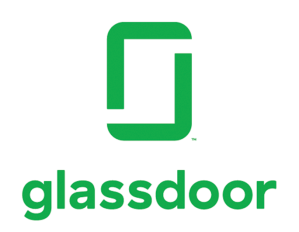Researchers from the Harvard and Tilburg Business Schools think they’ve found a method to do just that.
 One of the research techniques that has sprung up in the era of online engagement and interactivity is “mining” reader comments — then analyzing the granular data to discern their wider implications for companies and brands.
One of the research techniques that has sprung up in the era of online engagement and interactivity is “mining” reader comments — then analyzing the granular data to discern their wider implications for companies and brands.
One way this happens is by analyzing the words that employees use to describe their own companies on review sites. Doing so can provide clues as to what’s going on inside these companies that others can’t discovers based on forward-facing reporting about the organizations in the business or news press.
Underscoring this point, a study conducted jointly by researchers at Harvard Business School and the Tilburg School of Economics and Management in The Netherlands has found that such information extracted from employee-review websites like Glassdoor.com is helpful in being able to predict potential misconduct beyond other observable factors such as a firm’s financial performance and industry risk analysis.
The correlating factors revolve around employee observations concerning the environments in which they work – factors like:
- Company culture
- Company operations
- Control practices
- Performance pressures
Negative or critical comments made within these broad categories contribute to weighing the risk for corporate misconduct. Business management professor Dennis Campbell of the Harvard Business School notes that the “tone at the bottom” revealed by such comments can be a good early-warning signal of potential misconduct.
“Our theory is that what leads people to commit misconduct is actually the environment they are in,” adds Ruidi Shang, the Tilburg professor heading up the research team.
 The Harvard/Tilburg study sifted through information from anonymous reviews of publicly traded U.S. companies that had been posted on Glassdoor.com over a nine-year period between 2008 and 2017. Focusing on nearly 1,500 companies that had been the subject of ten or more review entries each over the period, by comparing keywords in the comments to actual corporate misconduct cases brought against public U.S. firms over the same period, direct correlations were found between the statements and the companies that were later found guilty of misconduct.
The Harvard/Tilburg study sifted through information from anonymous reviews of publicly traded U.S. companies that had been posted on Glassdoor.com over a nine-year period between 2008 and 2017. Focusing on nearly 1,500 companies that had been the subject of ten or more review entries each over the period, by comparing keywords in the comments to actual corporate misconduct cases brought against public U.S. firms over the same period, direct correlations were found between the statements and the companies that were later found guilty of misconduct.
The researchers discovered that certain terms and phrases used by employees in their comments correlate highly to misconduct cases – terms like bureaucracy, compliance, favoritism, harassment, hostile and strict. Such terms came up disproportionately more frequently in the discussions and comments.
Of course, such analyses are rough measures at best. Because the researchers drew comparisons between the comments and the corporate misconduct based only on cases that the U.S. government pursued, the methodology would have missed misconduct wasn’t known (or pursued) by the government. But as for providing “directional indicators,” the methodology seems to be a valid approach. I think we could see it being employed by Wall Street analysts as part of efforts to predict threats to future financial performance – and other potential problems — based on what the granular data reveals.
More details on the study and its findings can be read in this report.

Sounds promising in a weird way — until some brain wave researcher invents a sociopath detector for your phone.
I say this only half tongue-in-cheek!